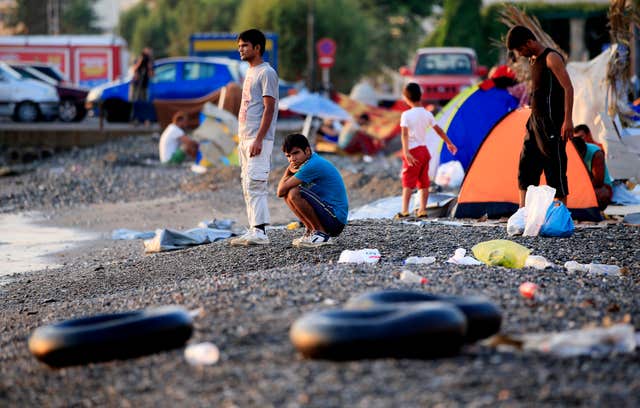A charity challenging the Government’s cap on the number of unaccompanied child refugees allowed into the UK has said local authorities could take more.
Help Refugees is bringing legal action at the Court of Appeal over the Home Office’s decision to cap the number of child asylum seekers to be accepted under an amendment moved by Labour peer Lord Dubs at 480.
Last year the charity sought orders to force then home secretary Amber Rudd to abandon the cap and reopen what it said was a “defective” consultation, so consideration could be given to allowing more children in.

During a hearing on Wednesday, the charity argued the figure “did not accurately reflect the capacity of local authorities” to provide children with places because it was arrived at following a “confusing” consultation process.
Lawyers for the charity argued the consultation question “caused, or at least encouraged” a misunderstanding among Scottish authorities which led to just six places being offered across the whole of Scotland.
They said responses given by local authorities in percentages were not included in the final figure and there was confusion over the closing date of the consultation.

The barrister said the ability of those children to challenge the refusal was “already impeded by formidable barriers” including their youth, lack of English or French, unfamiliarity with the UK legal system and, in many cases, trauma.
She added: “The obstacles for lone, unrepresented children based overseas seeking judicial review of unlawful decisions become almost insurmountable if they have neither written decisions nor written reasons.”
Ms Lieven argued that, in light of the “defective” consultation and the lack of reasons given to children, the High Court should have ruled in the charity’s favour.
Our #DubsNow appeal regarding the closure of the Dubs scheme has now begun. We have packed out the courtroom and want to send our thanks to everyone in court today, and the thousands of people have supported the appeal over the last 2 years. Together we hope we can win this case! pic.twitter.com/1qR0y8vy66
— Help Refugees (@HelpRefugees) July 25, 2018
Lawyers for the Home Office contend the High Court reached the right decision and are urging the Court of Appeal to dismiss the case.
The Dubs Amendment was to the 2016 Immigration Act and, from May last year, required the Home Secretary to make arrangements to relocate “a specified number” of vulnerable refugee children from Europe based on feedback from local authorities.
The Government increased the number of children to be relocated under the scheme from 350 to 480 in February last year.
The hearing, before Lord Justice McCombe, Lady Justice King and Lord Justice Hickinbottom, is due to finish on Thursday and the court is expected to reserve its ruling.






